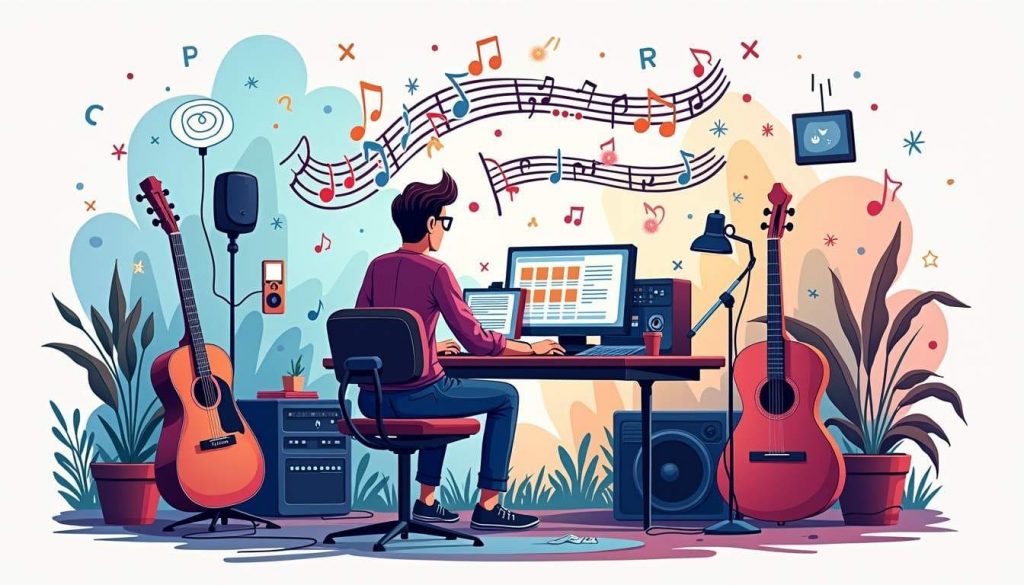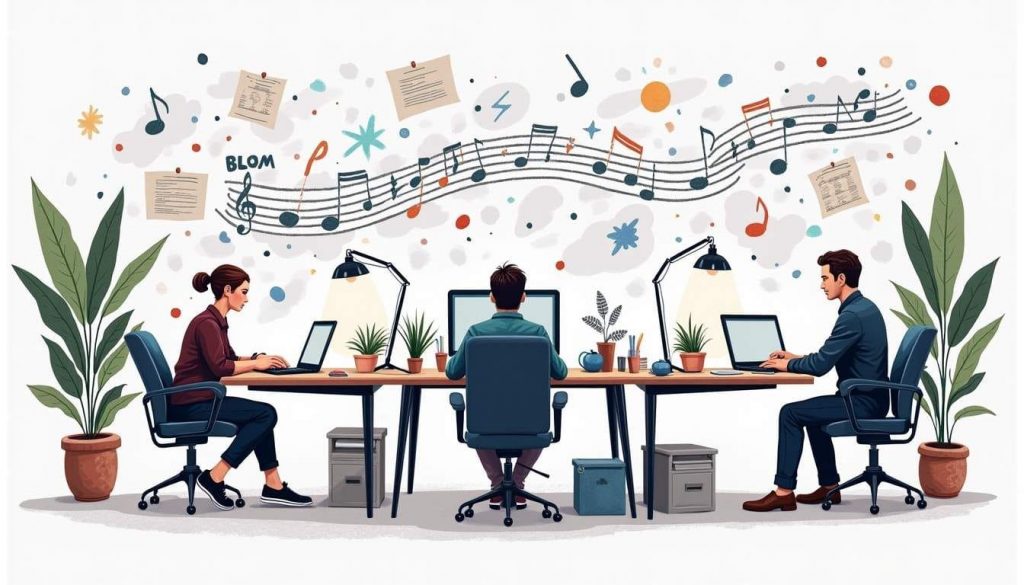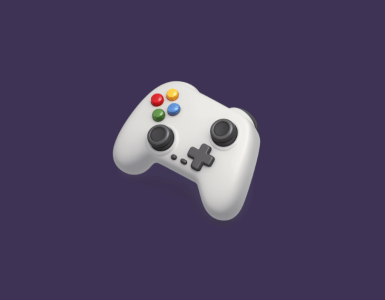In the competitive landscape of video game development, music can be the difference between a good game and an unforgettable experience. Whether you’re developing your first indie title or managing a AAA project, understanding game music composition will help you make informed decisions when hiring game composers. Here, we explore the most frequently asked questions about game music composition to help you navigate this crucial aspect of game development.
1. What is Game Music Composition?
Game music composition is a specialised field that combines musical artistry with technical expertise to create dynamic soundtracks for video games. Unlike traditional music composition, game music must adapt to player actions and enhance the interactive experience. When hiring a composer, you’ll want someone who understands both the artistic and technical aspects of game development.
Understanding the Role of Music in Games
Music serves multiple purposes in your game. It enhances storytelling, sets the mood, and can even guide player behaviour. A well-crafted score will align with your game’s themes and respond to player interactions. For example, a suspenseful score can heighten tension during critical moments, while a triumphant melody can reward player achievements. The right music can create memorable moments that players will associate with your game long after they’ve finished playing.
Differences Between Game Music and Other Media
Game music differs significantly from film or television scores due to its interactive nature. Your composer needs to create music that can change dynamically based on player actions, adding complexity to the composition process. For instance, your battle music might need to seamlessly transition between tension, combat, and victory themes based on player performance. This adaptability enhances immersion and makes players feel more connected to your game.
2. How Do Composers Start a Game Music Project?
Starting a game music project involves collaboration with the game development team to understand the vision and requirements. Composers often begin by creating a thematic framework that aligns with the game’s narrative. This initial phase is crucial, as it sets the tone for the entire score and ensures that the music will resonate with the game’s intended audience. Game composers may also conduct research on the game’s genre and style, drawing inspiration from existing soundtracks while striving to create something unique that fits the specific project.

Initial Meetings and Briefings
Composers typically meet with game designers and directors to discuss the game’s storyline, characters, and emotional arcs. This helps in crafting music that complements the game’s vision. During these meetings, composers may also present their ideas and concepts, allowing for a collaborative brainstorming session. Understanding the target audience is also essential, as it influences the musical choices made throughout the project. For instance, a game aimed at younger players may require a more whimsical and playful score, while a mature-themed game might call for darker, more complex compositions.
Creating a Musical Palette
Developing a musical palette involves selecting instruments and motifs that will be used throughout the game. This palette serves as the foundation for the entire score, ensuring consistency and thematic unity. Composers often experiment with different sounds and styles during this phase, seeking to establish a signature sound that reflects the game’s identity. The choice of instruments can significantly impact the overall feel of the music; for example, using orchestral strings can evoke a sense of grandeur, while electronic sounds might create a futuristic atmosphere. Additionally, motifs—short, recurring musical phrases—can help reinforce key themes and characters, making them more memorable to players.
3. What Tools and Software Are Used in Game Music Composition?
Understanding the technical aspects of game music composition will help you evaluate potential composers and ensure compatibility with your development pipeline.
Popular Digital Audio Workstations (DAWs)
DAWs like Logic Pro, Ableton Live, and FL Studio are commonly used in game music composition. They offer a range of features for recording, editing, and mixing music. Each DAW has its strengths; for instance, Logic Pro is known for its robust MIDI capabilities and extensive sound library, while Ableton Live excels in live performance and real-time manipulation of audio. Composers often choose a DAW based on their specific workflow preferences, whether they prioritise composition, sound design, or mixing. Additionally, many DAWs support third-party plugins, allowing composers to expand their sonic palette and experiment with new sounds.
Sound Libraries and Plugins
High-quality sound libraries and plugins are essential for creating professional game music. Your composer should have access to a comprehensive collection of virtual instruments and sound effects. Discuss whether your project requires live recordings or if high-quality virtual instruments will suffice, as this can impact your budget and timeline.
4. How Does Interactive Music Work in Games?
Interactive music is a key component of game music composition. It involves creating music that responds to player actions and changes dynamically throughout the game. This interactivity can take many forms, from simple transitions between different musical themes to complex systems that generate music in real time based on gameplay variables. The goal is to create a seamless audio experience that enhances immersion and keeps players engaged. Game composers must think critically about how their music will interact with the game mechanics, ensuring that it complements rather than distracts from the gameplay.
Adaptive Music Techniques
Your game composer should create music that adapts to different gameplay states. This might include variations in intensity during combat, ambient themes for exploration, or dynamic transitions between game states. Discuss your requirements for adaptive music early in the development process to ensure proper implementation.
For example, a game composer might create a base theme that evolves as the player progresses through different levels, adding layers of complexity or changing instrumentation to reflect the increasing stakes. This approach not only enhances the emotional impact of the music but also reinforces the player’s sense of agency within the game. By tailoring the music to the player’s experience, composers can create a more personalised and engaging atmosphere.
Implementing Interactive Music
Work closely with your game composer and audio engineers to integrate the music system into your game engine. Clear communication about technical constraints and gameplay triggers will ensure smooth implementation. Consider factors like memory usage, file sizes, and processing overhead when planning your game’s music system.
5. What Are the Challenges of Game Music Composition?
Composing music for games presents unique challenges that differ from other forms of media. These challenges include technical constraints, creative demands, and the need for interactivity. Game composers must navigate these complexities while maintaining their artistic vision, which can be a daunting task. The fast-paced nature of game development often requires game composers to work under tight deadlines, balancing the need for high-quality music with the realities of production schedules. Additionally, the collaborative nature of game development means that composers must be open to feedback and willing to adapt their work to fit the evolving needs of the project.
Balancing Creativity and Technical Limitations
Your game platform and engine will have specific limitations that affect music implementation. Discuss these constraints with your game composer early to ensure they can work within your technical boundaries.
For instance, composers may need to consider file size and format, as larger files can impact game performance, especially on lower-end hardware. Additionally, composers must be aware of the audio capabilities of the game engine being used, as different engines have varying levels of support for advanced audio features. This requires a deep understanding of both music composition and the technical aspects of game development, making it essential for composers to stay informed about industry standards and best practices.
Maintaining Player Engagement
Music must maintain player engagement without becoming repetitive or intrusive. This requires careful planning and the use of varied musical themes and motifs. Composers often create multiple variations of a theme to keep the music fresh, ensuring that players remain immersed in the game world.
Additionally, composers may incorporate silence or minimalistic sections to create contrast and highlight key moments in the gameplay. The challenge lies in finding the right balance between providing a rich auditory experience and allowing players to focus on the game itself. By carefully crafting their scores, composers can enhance the overall experience without overwhelming the player.
6. How Do Game Composers Collaborate with Game Developers?
Collaboration between game composers and game developers is crucial for creating a cohesive and immersive gaming experience. This partnership involves regular communication and feedback loops. Composers must be adaptable and open to suggestions, as the development process can lead to changes in the game’s direction or scope. Establishing a strong working relationship with the development team is essential, as it fosters an environment of creativity and innovation. Game composers who can effectively communicate their ideas and understand the needs of the developers are more likely to produce music that enhances the game.

Establishing a Workflow
Create a structured process for music review and implementation. Set clear milestones, deadlines, and feedback mechanisms. Regular progress updates help keep your project on track and allow for timely adjustments to the music.
Integrating Music into the Game
Integrating music into the game involves working closely with sound designers and programmers. Game composers must ensure their music aligns with the game’s audio design and technical requirements. This process often includes creating audio assets that can be easily implemented into the game engine, as well as providing documentation on how the music should function within the game. Composers may also need to participate in playtesting sessions to observe how the music interacts with gameplay, allowing them to make necessary adjustments based on player feedback. This collaborative approach ensures that the final product is a harmonious blend of music and gameplay, enhancing the overall player experience.
7. What Skills Are Essential for Game Music Composers?
Game music composers need a diverse skill set to succeed in the industry. These skills range from musical proficiency to technical expertise and collaborative abilities. A strong foundation in music theory and composition is essential, as it allows composers to create compelling melodies and harmonies that resonate with players. Additionally, familiarity with various musical styles and genres can help composers adapt their work to fit the specific needs of different games. As the industry continues to evolve, composers must also be willing to learn new techniques and technologies to stay competitive.
Musical and Technical Proficiency
Look for composers with strong musical foundations and technical proficiency in game audio tools. Experience with your chosen game engine or audio middleware is a valuable asset. Consider their portfolio’s diversity and how well it aligns with your game’s style.
Collaboration and Communication
Choose composers who communicate effectively and work well with development teams. Their ability to accept feedback and adapt their work is crucial for project success. Look for evidence of successful collaborations in their previous projects.
8. How to Find and Hire the Right Game Composer?
Finding the perfect game composer for your game requires careful consideration and thorough evaluation.
Evaluating Portfolios
Review potential game composers’ portfolios with attention to their experience in your game’s genre. Listen for versatility, quality, and technical proficiency in their previous work. Consider how well their style matches your game’s needs.
Making the Right Choice
Factor in budget, timeline, and technical requirements when selecting a game composer. Discuss their availability and ability to meet your project’s deadlines. Consider their experience with similar projects and their understanding of your game’s vision.
9. What Are the Trends in Game Music Composition?
Game music composition is constantly evolving, with new trends emerging as technology and player expectations change. Staying informed about these trends can help composers remain competitive. One notable trend is the increasing use of live orchestration in game scores, as advancements in recording technology make it more accessible for composers to incorporate live musicians into their projects. This trend not only enhances the quality of the music but also adds a layer of authenticity and emotional depth that can resonate with players.

Emphasis on Immersive Soundscapes
There is a growing emphasis on creating immersive soundscapes that enhance the player’s sense of presence within the game world. This involves using advanced audio techniques and spatial sound design. Composers are increasingly exploring the use of 3D audio and binaural recording techniques to create a more realistic and engaging auditory experience. By carefully placing sounds in a three-dimensional space, composers can make players feel as though they are truly part of the game environment. This trend aligns with the broader push for greater immersion in gaming, as developers seek to create experiences that captivate players on multiple sensory levels.
Integration of AI and Procedural Music
AI and procedural music are becoming increasingly popular in game music composition. These technologies allow for more dynamic and personalized musical experiences for players. By utilizing algorithms and machine learning, composers can create music that adapts in real-time to player actions and preferences. This approach not only enhances interactivity but also allows for a more tailored experience, as the music can evolve based on the player’s choices and gameplay style. As AI continues to advance, it is likely that we will see even more innovative applications in game music composition, pushing the boundaries of what is possible in this field.
10. What Does the Future Hold for Game Music Composition?
The future of game music composition is bright, with advancements in technology and a growing appreciation for the art form. Composers can look forward to new opportunities and challenges as the industry continues to evolve. As gaming becomes an increasingly mainstream form of entertainment, the demand for high-quality music will only continue to rise. This presents a wealth of opportunities for composers to showcase their talents and contribute to the ever-expanding landscape of interactive entertainment.
Technological Advancements
Technological advancements in audio production and game development will continue to shape the future of game music composition. Composers must stay abreast of these changes to remain relevant. Emerging technologies, such as virtual reality (VR) and augmented reality (AR), are creating new possibilities for immersive audio experiences. Composers will need to adapt their techniques to create music that enhances these new forms of gameplay, ensuring that the audio complements the visual elements and contributes to the overall experience. Additionally, advancements in audio middleware and game engines will provide composers with more tools to implement their music effectively, allowing for greater creativity and flexibility in the composition process.
Expanding Opportunities
As the gaming industry grows, so too do the opportunities for composers. From indie games to blockbuster titles, there is a wide range of projects for composers to explore and contribute to. The rise of mobile gaming and the increasing popularity of streaming platforms have also opened new avenues for composers to showcase their work. As more developers seek to create unique and engaging soundtracks, composers who can adapt to different styles and genres will be in high demand. Furthermore, the growing recognition of game music as a legitimate art form has led to increased interest in live performances and concerts featuring video game scores, providing composers with additional platforms to share their work with audiences.
In conclusion, game music composition is a dynamic and rewarding field that offers endless possibilities for creativity and innovation. By understanding the intricacies of this art form, composers can create music that not only enhances the gaming experience but also resonates with players on a deeper level. As technology continues to advance and the gaming landscape evolves, composers will play a crucial role in shaping the future of interactive entertainment, crafting soundtracks that captivate and inspire players around the world.
Connect with Expert Game Music Composers on Twine
Ready to elevate your video game’s soundtrack with the expertise of professional composers? Twine is here to help. Our marketplace is brimming with talented freelancers who specialise in game music composition, ready to bring your gaming experience to life. Whether you’re an indie developer or a large studio, Twine makes it easy to find and collaborate with the right creative talent for your project. Post your requirements for free and get connected to the right game composers.




